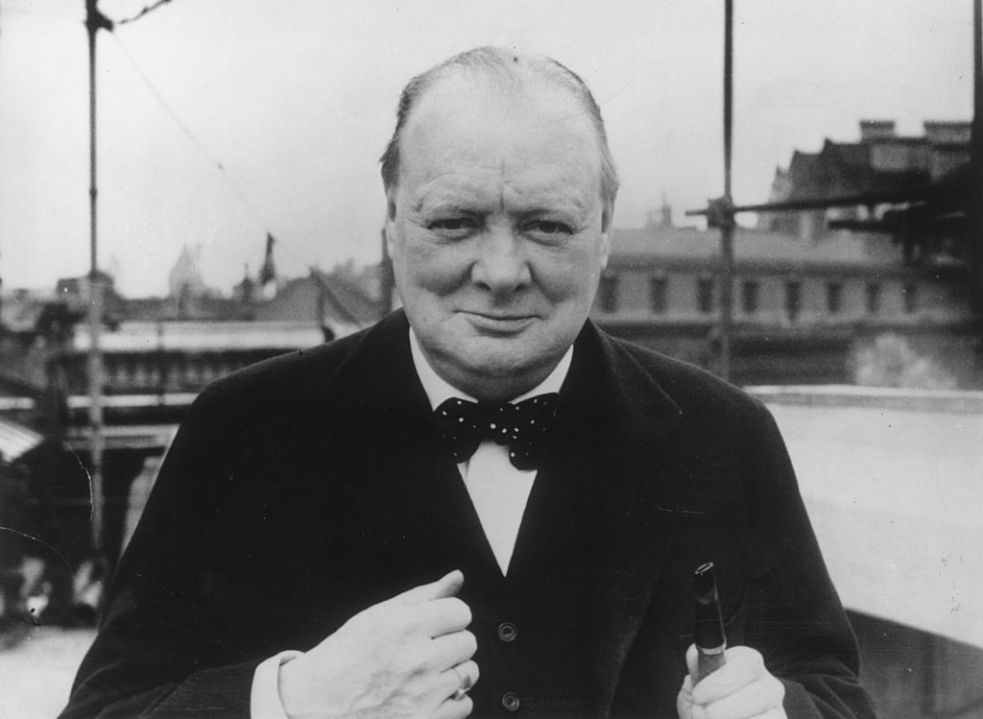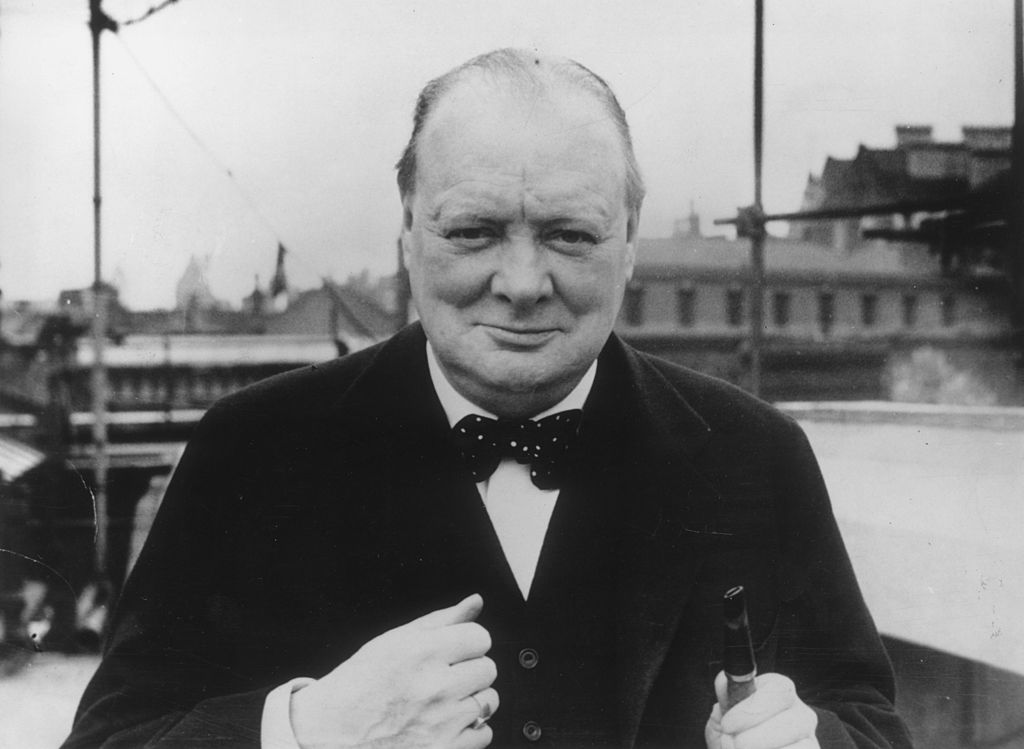Sir Winston Churchill arguably saved civilisation as we know it. Had Britain capitulated to Germany after the fall of France, the Nazis would have been able to dedicate their entire force to the invasion of the Soviet Union, probably taking the entire Eurasian front. North Africa would have become fascist Italy’s playhouse, with the United States isolated. So it is perhaps no surprise that those who despise Great Britain, its institutions and values, have done their utmost to attack the greatest Briton in history.
In the course of these attacks, Churchill has been painted as a racist and a genocidal tyrant who deliberately starved millions of Indians in the Bengal famine. Nothing could be further from the truth.
When facing the serious allegation that Churchill deliberately worsened the Bengal famine, it is essential to look at the primary sources: what was actually said at the time, and what the actual policies were. All of this is available at the Churchill Archives in Cambridge. And the truth is very different to what is frequently peddled by outlets like the Guardian and the BBC.
In October 1942, a cyclone struck Bengal and Orissa in British India, wiping out much of the rice crop in the region. Transportation of food and other resources were hindered as southern railways were washed away. The cyclone threw part of the subcontinent’s weather system out of sync, ruining the normal winter harvest in Northern India.
Previously, this could have been alleviated by the authorities purchasing grain in the surrounding territories of Burma, Malaya, Thailand and the Philippines. But these territories were all under Japanese occupation. Constitutionally, the famine was a matter reserved to local provincial governments run by Indians. However, once the news of the severity of the situation reached Westminster, the Churchill administration did all it could to alleviate the famine. Churchill summoned the war cabinet on many occasions to discuss aid. Hundreds of thousands of tons of grain were shipped to India to try to make up the shortfall. The minutes of a 1944 January War Cabinet meeting show that from mid-October 1943, about 80,000 tons of wheat were shipped from Australia to India, with 130,000 tons of barley sent from Iraq. In the same memo, another 100,000 tons of wheat from Canada were ordered to be shipped during the first two months of 1944.
Generally though, Churchill was struck with two fundamental problems: the shipping crisis and the Japanese fleet. Allied shipping was severely overstretched, and there were not enough ships for its current missions. Not only would these key ships have to be diverted from their objectives to send grain to India, but from April 1942 onwards, the Japanese maintained a powerful fleet of submarines and battlecruisers in the Bay of Bengal. These were a great threat to merchant shipping and were posted there throughout the famine period.
A government paper for the Chiefs of Staff Committee of the War Cabinet, of which Churchill had a copy, demonstrated the grave Japanese threat in the region. Marked ‘Strategy for the War against Japan’ on the 1 March, 1944, it showed that the ‘estimated area into which a Japanese Battleship/Carrier raiding force might penetrate’ was devastatingly far inside the Bay of Bengal.
From near the coast of the Maldives to South Burma, Japanese submarines and battlecruisers wreaked havoc on the East Indian shipping routes. Nevertheless, the British administration still managed to send about a million tons of grain to India between August 1943 and December 1944. Many of Churchill’s detractors point to declining grain being sent from Canada as evidence of him deliberately refusing aid for India. What it actually demonstrates is that Churchill was strategic – and sent grain from closer places to reduce any logistical issues and allow food to reach starving Bengalis quicker. If you read the full November 1943 telegrams between Churchill and Canadian Prime Minister, Mackenzie King, Churchill is clearly exonerated from the charge that he starved Indians in Bengal.
In these telegrams Canada offered India 100,000 tons of wheat. Shipping wheat from the Canada’s West coast was impractical, given that Canada was already inadequately trying to transport timber goods for aeroplane manufacturing and Chilean nitrate to Egypt. And, as Churchill noted, it was a nightmare shipping from eastern Canada given that the journey would take at least two months. He instead had the wheat ordered from Australia where it would take three to four weeks to arrive. Winston, and the war cabinet, chose the most practical and quick option. Those who refuse to accept this and pretend that Churchill simply refused to aid India are completely wrong.
Later in April 1944, a rather distraught Churchill telegrammed President Roosevelt, pleading for American aid. He wrote that:
‘I am seriously concerned about the food situation in India’ and ‘by cutting down military shipments and other means, I have been able to arrange for 350,000 tons of wheat to be shipped to India from Australia during the first none months of 1944. This is the shortest haul. I cannot see how to do more.’
In the same message he asked the United States for a ‘special allocation of ships to carry wheat to India from Australia.’ Roosevelt’s response was depressing – America could not divert any ships without hindering its military operations. There was to be no American aid.
Of course, we must remember that throughout all of this, not only was Japan attempting to invade India but it was bombing coastal cities. This damage worsened the crisis. In December 1943, a bombing raid over the Calcutta docks caused major port backlogs. Accidents didn’t help either, such as when a ship caught fire and blew up in April 1944 at the Bombay docks. Not only was the port not fully functional for six months but that one explosion destroyed over 36,000 tons of food.
So where do the false accusations of Churchill engineering or prolonging the famine come from? Partly from conspiratorial works which neglect many of the facts referenced above. But the primary reasoning is based on alleged quotes Churchill made in private, that Indians were ‘a beastly people with a beastly religion’. This quote though is actually taken from Amery’s diaries (the secretary of state of India). If one looks at the full context, Churchill was at the time under immense pressure, with the Quit India Movement refusing to compromise with the British government over independence. In doing this, they were helping the Japanese, as the independence movement encouraged mass disobedience at a time when Japan was invading the country. Can we not forgive Churchill, a man bearing the weight of the world on his shoulders, whilst being ill for much of the war (he had a heart attack in December 1941, multiple bouts of pneumonia and more)?
If Churchill’s detractors actually bothered reading Amery’s diaries, they would see that Churchill often had quick bursts of rage to blow off steam. Yes, these comments were awful and racist, but to pretend that this represented his view on Indians is dishonest. Winston was a paternalistic imperialist. He was condescending, yes. But he was not genocidal. His opposition to Indian self-government in the 1930s was out of fear of the Brahmins abusing the Untouchables. He was extremely concerned that premature independence would cause the subcontinent to partition, but Churchill on many occasions professed concern for the wellbeing and protection of Indians. He once said, ‘I want to see a great shining India, of which we can be as proud as we are of a great Canada or a great Australia.’ And recounted that, ‘The unsurpassed bravery of Indian soldiers and officers, both Moslem and Hindu, shine for ever in the annals of war…The response of the Indian peoples, no less than the conduct of their soldiers, makes a glorious final page in the story of our Indian Empire.’ To paint Churchill as an unapologetic racist, responsible for the Bengal famine is a gross distortion of history.







Comments